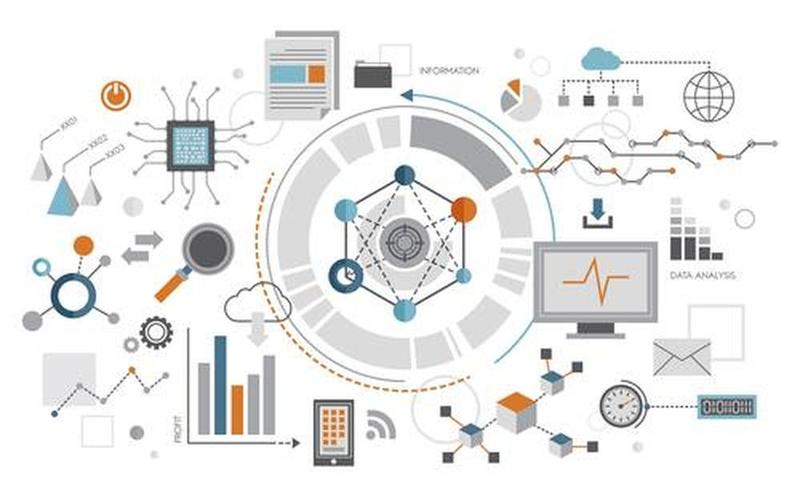Technologies Tech-artificial-intelligence Aws-azure-google
Cloud computing has revolutionized the way businesses operate and manage their IT
infrastructure. Cloud computing refers to the delivery of computing services, including servers,
storage, databases, software, and networking, over the internet. The three most popular cloud
computing platforms are AWS, Azure, and Google Cloud Platform (GCP). In this guide, we will
delve into the features, applications, and benefits of these three cloud computing platforms.
AWS
Amazon Web Services (AWS) is a cloud computing platform that offers a wide range of services,
including compute, storage, databases, analytics, machine learning, and security. AWS is
designed to be highly scalable, flexible, and cost-effective. With AWS, businesses can easily
deploy and manage their applications and services, without worrying about infrastructure
management.
AWS Benefits: AWS offers a variety of services, including Amazon Elastic Compute Cloud (EC2), which
provides resizable compute capacity in the cloud, Amazon Simple Storage Service (S3), which
provides scalable object storage for data backup and archiving, and Amazon RDS, which
provides managed relational databases. AWS also offers a wide range of security services,
including Amazon GuardDuty, which provides threat detection, Amazon Inspector, which
provides automated security assessments, and AWS WAF, which provides web application
firewall protection.
AWS Applications: AWS is used by businesses of all sizes and across various industries, including healthcare,
finance, and gaming. AWS is particularly popular among startups and small businesses, who can
benefit from the platform's scalability and cost-effectiveness.
Azure
Microsoft Azure is a cloud computing platform that provides a wide range of services, including
compute, storage, databases, networking, and analytics. Azure is designed to be highly scalable
and flexible, with a focus on enterprise-level applications and services. With Azure, businesses
can easily deploy and manage their applications and services, without worrying about
infrastructure management.
Azure Benefits
Azure offers a variety of services, including Azure Virtual Machines, which provides resizable
compute capacity in the cloud, Azure Blob Storage, which provides scalable object storage for
data backup and archiving, and Azure SQL Database, which provides managed relational
databases. Azure also offers a wide range of security services, including Azure Security Center,
which provides threat detection and security management, and Azure Active Directory, which
provides identity and access management.
Azure Applications
Azure is used by businesses of all sizes and across various industries, including healthcare,
finance, and government. Azure is particularly popular among large enterprises, who can benefit
from the platform's enterprise-level services and integration with other Microsoft products and
services.
Google Cloud Platform
Google Cloud Platform (GCP) is a cloud computing platform that provides a wide range of
services, including compute, storage, databases, networking, and machine learning. GCP is
designed to be highly scalable, secure, and flexible, with a focus on innovation and collaboration.
With GCP, businesses can easily deploy and manage their applications and services, without
worrying about infrastructure management.
Benefits of Google Cloud Platform
GCP offers a variety of services, including Compute Engine, which provides resizable compute
capacity in the cloud, Cloud Storage, which provides scalable object storage for data backup and
archiving, and Cloud SQL, which provides managed relational databases. GCP also offers a wide
range of security services, including Cloud Security Command Center, which provides threat
detection and security management, and Cloud Identity, which provides identity and access
management.
Applications of GCP
GCP is used by businesses of all sizes and across various industries, including healthcare,
finance, and retail. GCP is particularly popular among businesses that value innovation and
collaboration, as the platform offers a range of tools and services that facilitate these activities.
Comparison of Cloud Compution Platforms
When comparing AWS, Azure, and GCP, there are several factors to consider, including cost,
performance, features, and support.
In terms of cost, AWS and GCP are generally considered to
be more cost-effective than Azure, although this can vary depending on the specific services
being used and the region they are being used in. AWS offers a wide range of pricing models,
including pay-as-you-go, reserved instances, and spot instances, which can help users save
money on their cloud infrastructure costs. GCP, on the other hand, offers sustained usage
discounts, which provide automatic discounts based on usage, as well as committed use
discounts, which offer deeper discounts for long-term commitments. Azure also offers
pay-as-you-go pricing, but is generally considered to be more expensive than AWS and GCP for
similar services.
In terms of performance, all three cloud providers offer reliable and scalable infrastructure that
can support even the most demanding workloads. However, performance can vary depending on
the specific service being used, the location of the data center, and other factors. AWS and Azure
are both known for their extensive global network of data centers, which can help reduce latency
and improve performance for users in different regions. GCP, while still growing its network, has
also invested heavily in building out its infrastructure and offers impressive performance and
reliability.
When it comes to features, AWS has the widest range of services and tools, with over 200
services available for users to choose from. This includes popular services like Amazon S3,
Amazon EC2, and Amazon RDS, as well as newer offerings like Amazon SageMaker for
machine learning and Amazon Aurora for database management. Azure also offers a wide range
of services, including popular offerings like Azure Virtual Machines, Azure App Service, and
Azure SQL Database, as well as newer services like Azure Kubernetes Service and Azure
Cosmos DB. GCP offers a more focused set of services, but has recently been expanding its
offerings to include more enterprise-grade services like Google Cloud Bigtable for NoSQL
databases and Google Cloud AI Platform for machine learning.
Another important factor to consider when comparing cloud providers is support.
All three cloud providers offer comprehensive support options, including documentation, online forums, and
technical support. AWS and Azure both offer enterprise-grade support plans that provide 24/7
support and guaranteed response times, as well as dedicated account managers and other
benefits. GCP offers similar support options, although its support plans are generally considered
to be less robust than those offered by AWS and Azure.
Choice of a Cloud Computing Platform
Ultimately, the choice between AWS, Azure, and GCP will depend on a variety of factors,
including the specific needs of the user, the size and complexity of the workload, and the budget
available. Each cloud provider has its own strengths and weaknesses, and users should carefully
evaluate their options before making a decision. It is also important to note that many
organizations use multiple cloud providers for different workloads, in order to take advantage of
each provider's strengths and avoid vendor lock-in.
Cloud computing has revolutionized the way we store, process, and analyze data,
and has become an essential tool for organizations of all sizes. AWS, Azure, and GCP are three
of the most popular cloud providers, each offering its own unique set of features and capabilities.
By understanding the strengths and weaknesses of each provider, users can make informed
decisions about which provider to choose for their specific needs, and can take full advantage of
the benefits of cloud computing.






